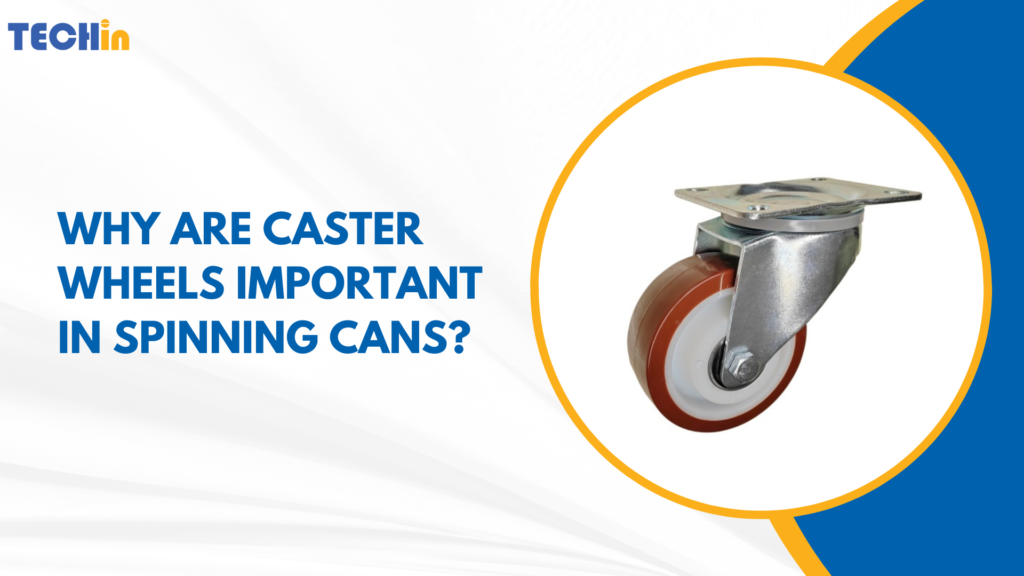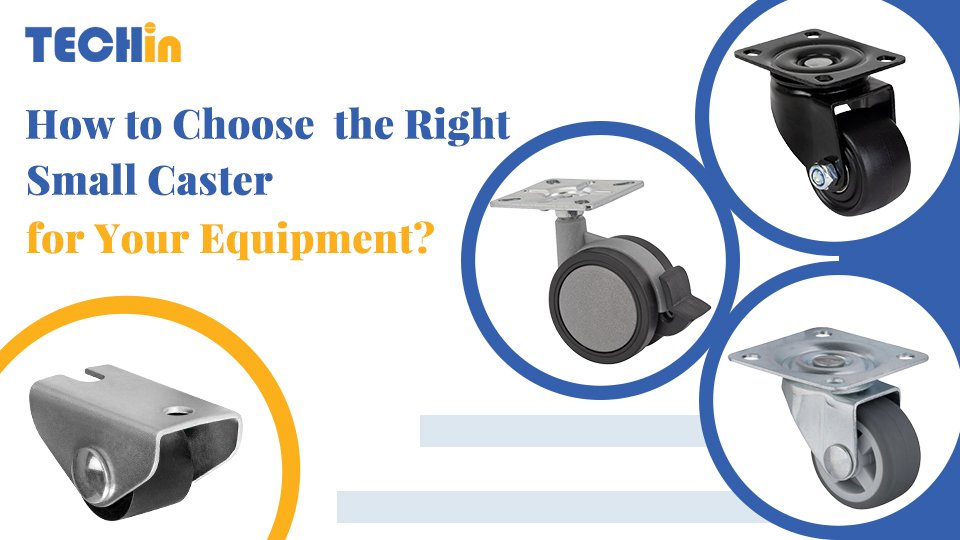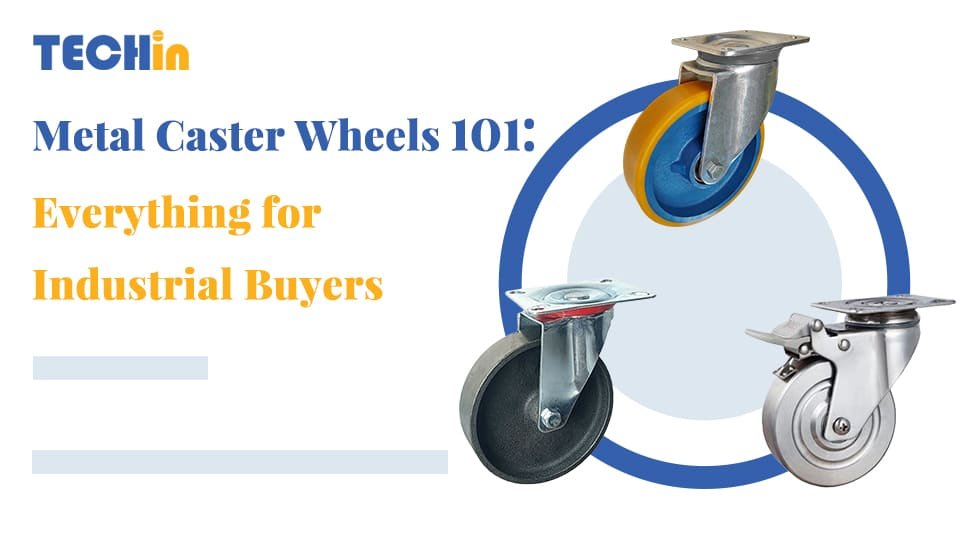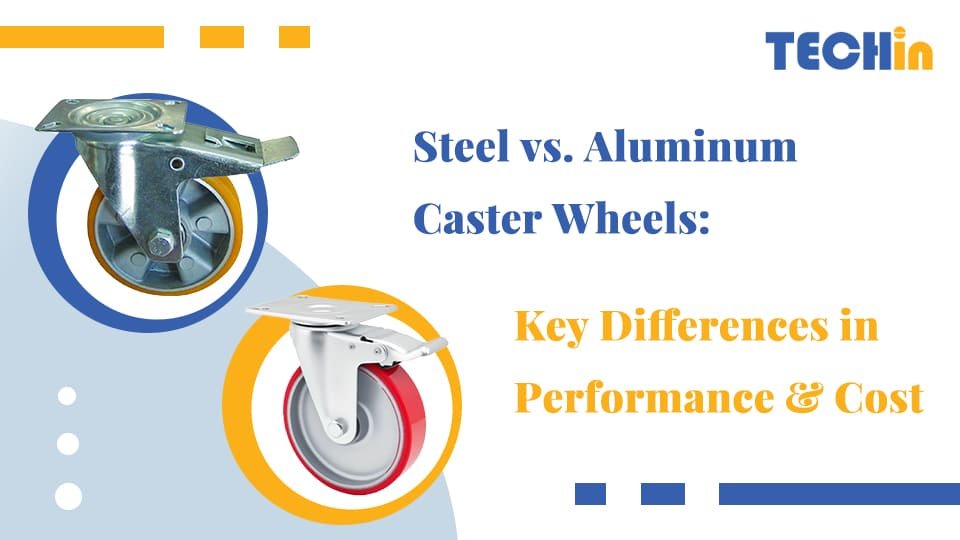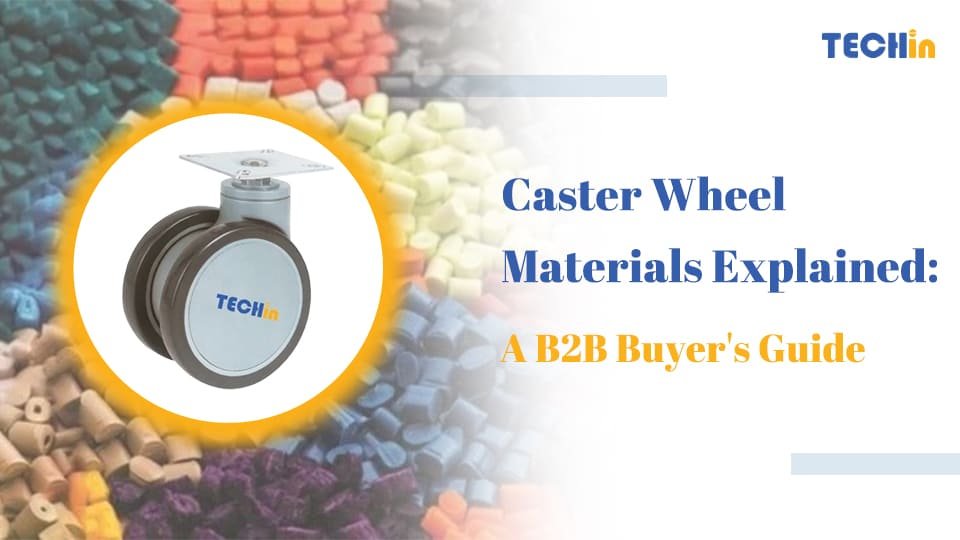Spinning cans are a critical component of the textile manufacturing process, as they help facilitate the smooth movement of slivers throughout the production process. However, the effectiveness of spinning cans is largely dependent on the quality of the caster wheels that support them. But why are caster wheels so important for spinning cans, and what should buyers look for? Let’s dive into the details.
Caster wheels are important for spinning cans because they allow them to move smoothly across the mill floor, which helps improve operational efficiency. The quality of the caster wheel affects not only how well the spinning can moves, but also how long both the spinning can and the mill floor last. Good caster wheels reduce maintenance, improve safety for workers, and are necessary to make sure slivers are handled properly to maintain the quality of yarn production.
If you don’t have good caster wheels, spinning cans can be hard to move, which can disrupt production and potentially damage the slivers. That’s why it’s important for mills to invest in the right caster wheels to keep their operations running smoothly and efficiently.
1. What Are Caster Wheels, and Why Do They Matter in Spinning Cans?
At their core, caster wheels are non-powered wheels mounted to the base of spinning cans to allow for easy mobility. Caster wheels consist of two primary components: the wheel itself and the mount that holds it in place. The purpose of these wheels is to enable the movement of heavy objects, such as spinning cans, with minimal physical effort.
In the context of spinning cans, caster wheels ensure that slivers are transported efficiently across the mill floor. This minimizes the risk of damage to the slivers, which is crucial for maintaining the quality of the yarn produced. Poor-quality or damaged slivers can lead to imperfections in the final product, resulting in wastage and decreased profitability for the mill.
The importance of caster wheels in spinning cans goes beyond mobility; they also contribute to reducing worker fatigue and improving workplace safety. With the right set of caster wheels, the need for excessive manual effort is eliminated, allowing workers to handle cans more efficiently without strain or injury.
2. How Do Caster Wheels Enhance Mobility in Spinning Cans?
Caster wheels play a significant role in improving the mobility of spinning cans within a textile mill. Their design is aimed at reducing friction between the wheel and the floor, ensuring that cans can glide across various surfaces effortlessly. This is especially important in mills where spinning cans are moved frequently between different areas, from carding to combing, drawing, and spinning.
One of the major benefits of quality caster wheels is the ability to support both manual and automated movement. In many mills, spinning cans are moved manually by workers. High-quality caster wheels reduce the force required to push or pull the cans, making the task easier and less physically demanding. For automated systems, smooth and durable caster wheels ensure that the movement remains uninterrupted, reducing the chances of equipment malfunction.
Additionally, mobility isn’t just about moving the cans from one point to another. It’s also about doing so without causing damage to the floor surfaces or the spinning cans themselves. High-quality caster wheels are designed to protect both the spinning cans and the mill’s flooring, reducing wear and tear and prolonging the lifespan of equipment.
3. What Are the Different Materials Used for Caster Wheels?
Caster wheels are made from a variety of materials, each offering distinct advantages depending on the environment in which they will be used. When selecting caster wheels for spinning cans, buyers must consider the material of the wheel to ensure optimal performance. The most commonly used materials for caster wheels in spinning cans include:
- Polypropylene: Polypropylene caster wheels are known for their durability and resistance to moisture and chemical solvents. This makes them an ideal choice for mills that operate in environments where exposure to moisture or corrosive substances is a concern. These wheels are also lightweight, making them easy to handle, yet strong enough to support heavy loads.
- Nylon: Nylon, particularly Nylon 6, is widely used in caster wheels due to its superior thermal stability. It can withstand high temperatures and harsh external conditions without losing its structural integrity. Nylon wheels are resistant to chemical solvents, ensuring that they perform well even in challenging environments.
- Cast Iron/Ductile Iron: These materials are favored for their high load-bearing capacity and durability. Cast iron and ductile iron wheels can handle extremely heavy loads without breaking or chipping, making them a great choice for mills with significant weight requirements. These wheels are also temperature-resistant, ensuring they maintain their performance under extreme conditions.
Other materials commonly used in caster wheels include polyurethane, rubber, stainless steel, and neoprene. Each material offers specific benefits depending on the needs of the spinning cans and the conditions in which they will be used.
4. What Load Capacities Are Available for Caster Wheels?
The load-bearing capacity of caster wheels is another critical factor that must be considered when selecting the right wheels for spinning cans. Depending on the weight of the cans and the amount of sliver they will be transporting, different caster wheels are required to ensure smooth and safe movement. Here’s a breakdown of the different load capacities:
- Heavy-Duty Caster Wheels: These wheels are designed to support loads above 140 kgs. Heavy-duty caster wheels are ideal for large spinning cans that must transport significant quantities of sliver across the mill. These wheels ensure that the cans remain stable and easy to move, even under heavy loads.
- Medium-Duty Caster Wheels: Medium-duty caster wheels can support weights between 70 and 140 kgs. These wheels are suitable for spinning cans with moderate load requirements. It’s important to verify the exact load capacity with the manufacturer to ensure that the wheels are not overloaded.
- Light-Duty Caster Wheels: Designed for smaller loads (under 70 kgs), light-duty caster wheels are often used in environments where smaller spinning cans are employed. While these wheels offer less load-bearing capacity, they are cost-effective and easier to maneuver.
Additionally, for outdoor environments or mills that operate on rough surfaces, pneumatic caster wheels may be a better option. These wheels are puncture-proof and offer excellent shock absorption, making them ideal for uneven surfaces.
5. What Factors Should Buyers Consider When Choosing Caster Wheels for Spinning Cans?
When selecting caster wheels for spinning cans, there are several important factors that buyers must take into account to ensure optimal performance. These factors include:
- Floor Type: The type of floor in the mill will greatly influence the type of caster wheels needed. For smooth floors, harder wheels made from materials like nylon or polypropylene are ideal, as they offer minimal rolling resistance. On rougher or uneven surfaces, softer wheels like rubber or polyurethane may be better suited to provide smoother movement.
- Maneuverability: Swivel casters provide the ability to rotate 360 degrees, allowing for greater flexibility in movement. These wheels are ideal for areas where spinning cans need to be maneuvered in tight spaces. Rigid casters, by contrast, only move forward and backward, making them less suitable for certain applications but useful in environments where straight-line movement is sufficient.
- Hardness and Durability: The hardness of caster wheels, typically measured on the Shore A or Shore D scales, affects their ease of movement and their durability. Harder wheels have less rolling resistance, making them easier to push but potentially more prone to vibration. Softer wheels, on the other hand, offer quieter operation and better shock absorption, but may require more effort to move.
- Wheel Size: The diameter of the caster wheel impacts its load capacity and ease of movement. Larger wheels are generally easier to move and can support heavier loads, but they may be less stable. The width of the wheel also affects its starting and rolling resistance—wider wheels tend to offer more stability but may be harder to start moving.
- Operating Environment: Mills that operate in environments with high temperatures, chemical exposure, or moisture should select caster wheels made from materials that can withstand these conditions. Nylon and polypropylene, for example, are both highly resistant to moisture and solvents, making them ideal for mills with demanding environmental factors.
Conclusion
Choosing the right caster wheels for spinning cans is critical to keeping textile mills running smoothly. Good caster wheels not only help you move spinning cans, but they also protect the slivers, reduce maintenance costs, and make your workers safer. By thinking about things like material, load capacity, floor type, and maneuverability, you can make sure your spinning cans work well and help you make great yarn.
In the end, investing in the right caster wheels is a smart move for any mill that wants to run well and make good yarn. Whether you’re running a small mill or a big one, the right caster wheels will help you move your spinning cans smoothly, efficiently, and safely.

